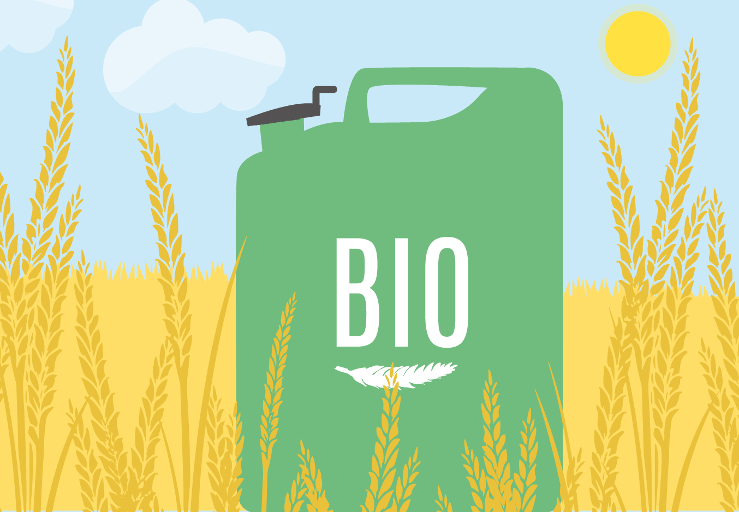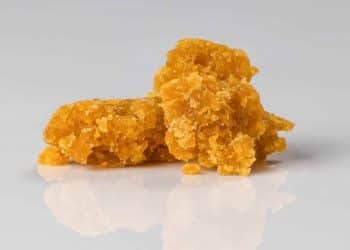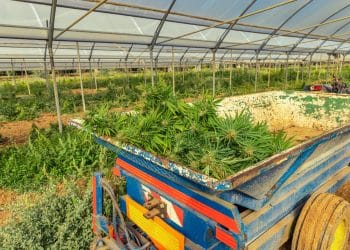Fossil fuels – “Can’t live with them, can’t live without them”. They are relentlessly depleting while fueling the relentlessly increasing global warming, making for probably the most ominous lose-lose situation mankind has ever been a part of.
The fiber crop Cannabis sativa, also known as industrial hemp, has long been considered the “one stone” that could possibly hit the “two birds” in this daunting global scenario and change its outcome. However, the shadow of cannabis’s former illegal status and other concerns of ecological nature have so far confined hemp’s potential for becoming the biofuel of the future within the hypothetical realm.
Whether hemp’s “green” properties are worth exploring, and if so, how exactly their exploration should be approached, are questions which not only the cannabis industry wants answered, but the world as a whole.
Backstory
Hemp’s history as a possible alternative to fossil fuels dates as far back as Henry Ford and his Model T, or “Thin Lizzie”, which ran either on gasoline or hemp-based fuels [1]. But the discovery of large crude oil deposits in the early 20th century quickly put an end to Ford’s bright ideas for a greener future.
Then BioDiesel Magazine reported in 2007 on the cultivation of hemp for biofuels and the reasons it remained mostly experimental – hemp’s lack of economic value due to its minimal production [2].
But hemp’s “green” story didn’t end there.
Hemp’s Advantages for Biofuels
In 2010, a study from the University of Connecticut (UConn) continued the story, researching the various benefits of hemp as biofuel[3].
One problem with biofuels is that some proposed plant feedstocks require fertile soils, just like food. Hence, biofuels come at a cost. Land usage has resulted in the food v. fuel debate.
“For sustainable fuels, often it comes down to a question of food versus fuel,” says Richard Parnas, a professor of chemical, materials, and biomolecular engineering who led the study. “It’s equally important to make fuel from plants that are not food, but also won’t need the high-quality land.”
Resilient and Low Maintenance
But hemp, in fact, is able to grow in infertile soils. And it gets even better. Hemp returns around 70% of the nutrients it requires during and after the growth cycle back to the soil, significantly reducing the necessary use of fertilizers [4]. Same goes for hemp’s water intake. While biofuels usually require a lot more water than fossil fuels, hemp actually needs roughly half the amount corn does, for example.
Bioremediation
Hemp can also be used for a process called bioremediation which refers to the restoration of soil from toxic pollution. Because hemp is a natural phytoremediator, it helps remove toxins from the soil. In this capacity, hemp has been used by farmers to “cure” their fields [5], even from radioactive agents, metals, pesticides, crude oil, and toxins in landfills.
Absorbs CO2 Faster Than Trees
Hemp actually absorbs CO2 faster than trees. Not to mention by using hemp for biodiesel, the CO2 emissions are reabsorbed in plants through photosynthesis.
It’s Being Produced and Wasted Anyway
One of the most perplexing things about the skepticism around hemp in relation to biofuel is the fact it’s actually already being grown and wasted in many parts of the world.
Cannabis stalks are used as fiber exactly because of hemp’s resilient and low-maintenance nature. But hemp’s seeds get thrown away, and it’s exactly in the seeds where hemp’s “green” properties lie. Approximately 1/3 of the seeds is oil, which could make for roughly 207 gallons per hectare.
“If someone is already growing hemp,” Parnar says, “they might be able to produce enough fuel to power their whole farm with the oil from the seeds they produce.”
This may seem insignificant, but actually, if farms were to adopt hemp as biofuel, they could set a great example of a self-sustainable mini “ecosystem” with minimal environmental footprint.
Parnar goes on to explain that a hemp biodiesel industry would need little additional investment since a hemp industry already exists.
Use of the Whole Plant
The oil from the seeds are by far not hemp’s only use. The remaining parts of the hemp can be fed to animals, leaves that fall off during the growth cycle go back to the soil, not to mention hemp’s various applications as fiber, paper, rope, clothing, and more.That makes growing hemp for biofuel much more practical and efficient compared to cultivating other types of biofuel.
High Conversion Rates
The researchers at UConn found that 97% of hemp oil is converted into biodiesel which could possibly even be used at lower temperatures compared to all other biodiesels currently available.
Obstacles to Consider
As is always the case with biofuels, their effect is determined on how they fit in the big picture, the butterfly effect their implementation would trigger.
One of the main obstacles of adopting hemp as biofuel on a global scale is that those infertile lands tend to be hard to farm, which respectively means hemp would be hard to distribute for mass processing biofuels. Such a process would come with more CO2 emission, costs, etc.
Another concern is that hemp biofuels might eventually demand us to make the same hard choice as its other “green” predecessors – the choice between biofuels and foods. Despite it being able to grow in infertile lands, the more fertile the soil, the better.
There’s no way a potential discovery as major as this can come without any setbacks or difficulties to overcome whatsoever. But what’s most important for now is the fact that the promise of this biofuel’s advantages by far outweighs the danger of its disadvantages. More research on hemp and its applications might unlock great power for change, perhaps unmatched by anything we’ve achieved so far.
References:
- https://www.cannabistech.com/articles/driving-toward-a-greener-future-with-hemp-biofuels/
- https://www.theguardian.com/environment/blog/2008/jan/28/whyishempoffthebiofuelme
- https://today.uconn.edu/2010/10/hemp-produces-viable-biodiesel-uconn-study-finds/?utm_campaign=Tiers&utm_source=Tier2&utm_medium=Frontpage
- http://hig.diva-portal.org/smash/get/diva2:842842/ATTACHMENT01.pdf
- https://www.cbsnews.com/news/cannabis-plant-soil-decontamination-italy-vincenzo-fornaro/
- http://hig.diva-portal.org/smash/record.jsf?pid=diva2%3A842842&dswid=4362













